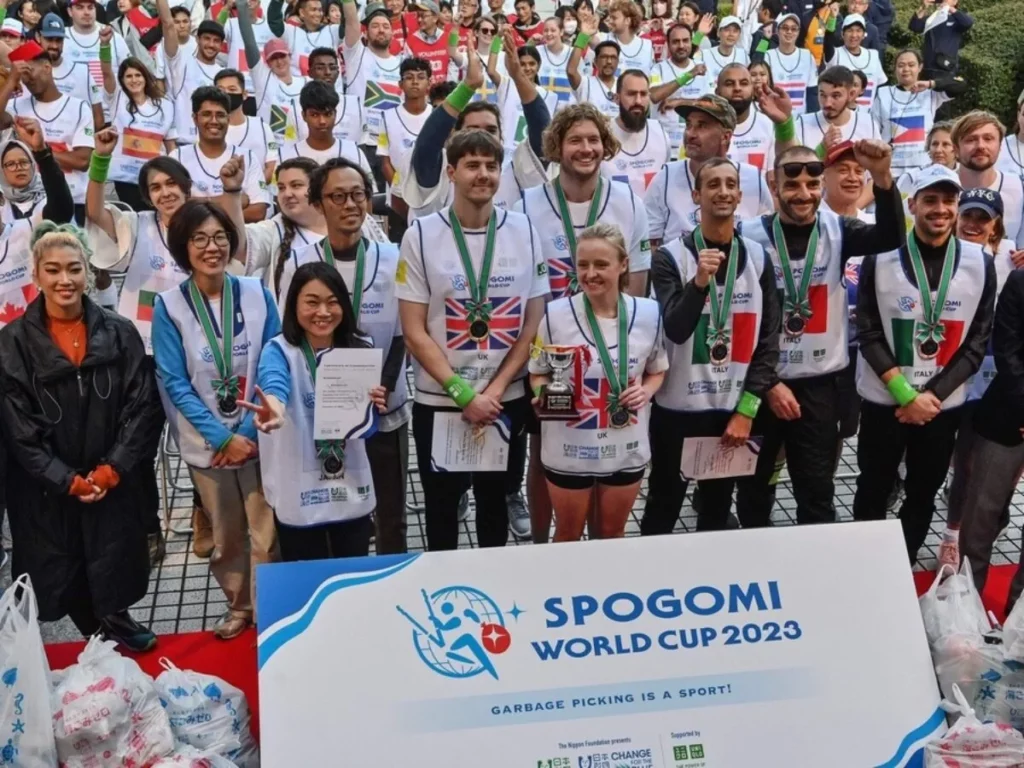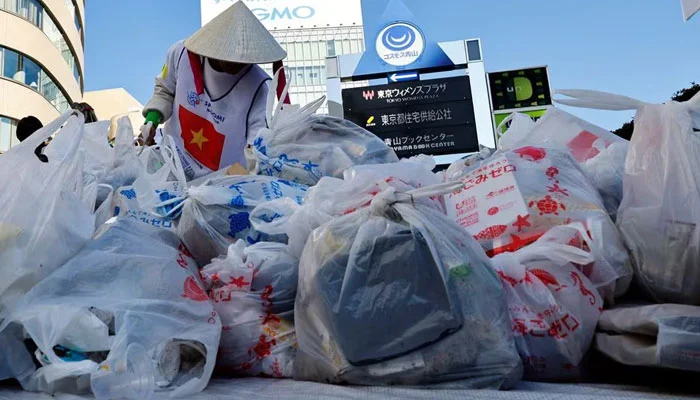In a groundbreaking effort to address environmental concerns on a global scale, Tokyo recently played host to the first-ever SpoGomi (litter-picking) World Cup. Drawing participation from 21 teams worldwide, the competition aimed to highlight the urgent need for environmental action. The United Kingdom’s team, aptly named “The North Will Rise Again,” emerged as the victor, showcasing exceptional dedication to the cause.
Representatives from countries such as Australia and Brazil enthusiastically joined the litter-picking initiative, engaging in a spirited 90-minute challenge on the streets of Shibuya and Omotesando. The UK’s triumph in amassing 9,046.1 points and collecting 57.27 kilograms (126.26 lbs) of litter demonstrated a commendable commitment to environmental stewardship, surpassing the efforts of the host nation, Japan.

Reflecting on the experience, team captain Sarah Parry underscored the dual focus of the event on both sport and ecological awareness. Parry emphasized the profound lessons learned during the competition, shedding light on the pressing need to address ocean pollution and reduce litter. Her reflections highlighted the broader impact that extends beyond the confines of the competition.
Despite Japan’s reputation for impeccable cleanliness, some participating teams faced challenges in locating litter due to the country’s high standards of hygiene. This aspect of the competition highlighted the importance of heightened environmental consciousness even in nations with stringent cleanliness practices.

The term SpoGomi, coined by combining the Japanese words for trash, “Gomi,” and an abbreviation of “sport,” originated in 2008 with the aim of encouraging public participation in litter collection. The concept has gained widespread popularity, with 230 contests held in Japan this year alone. The SpoGomi World Cup, organized by the Nippon Foundation, sought to raise awareness about environmental issues, particularly plastic pollution in oceans.
Environmental Advocacy and Future Plans:
Executive Director Mitsuyuki Unno emphasized the dual purpose of the event—raising awareness among those unfamiliar with marine waste problems and providing opportunities for individuals eager to contribute to environmental actions. The resounding success of the inaugural SpoGomi World Cup highlights the global resonance of environmental consciousness. Plans are already underway for the second edition in 2025, further solidifying the commitment to fostering positive environmental change on a worldwide scale.




